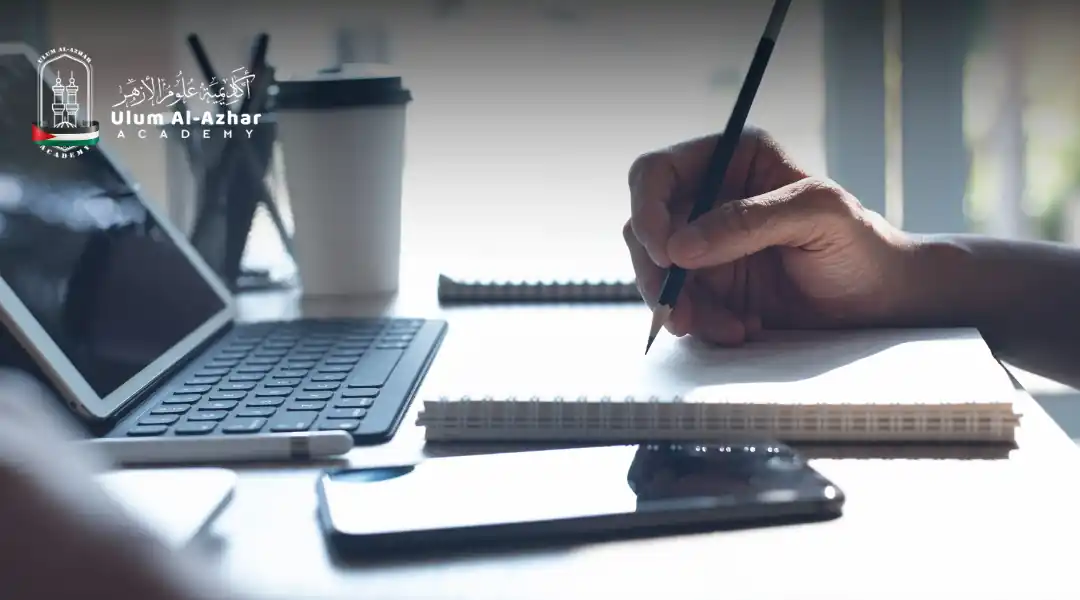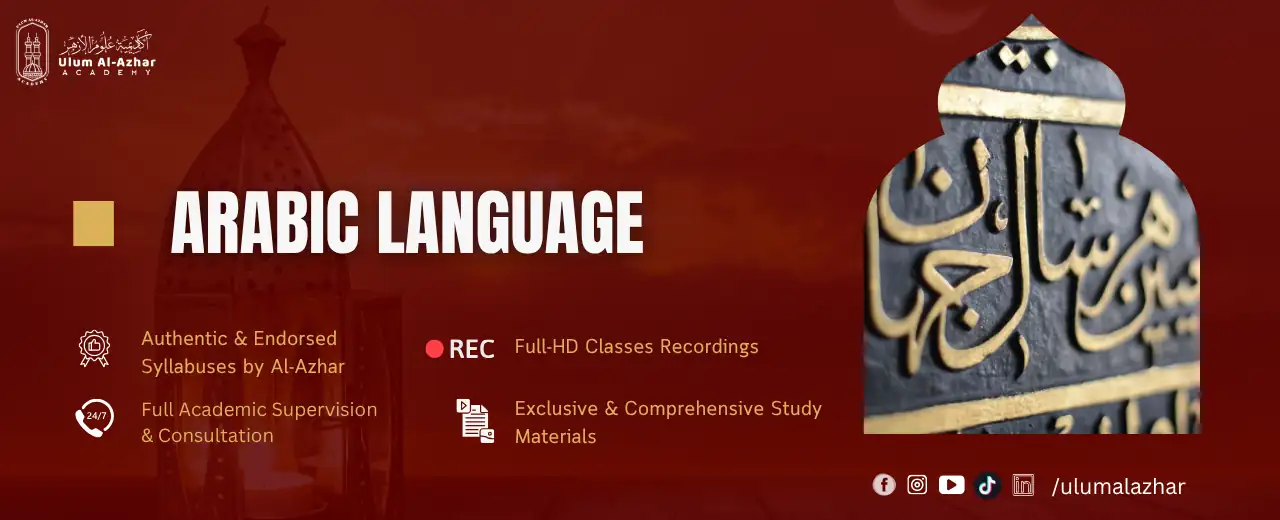
Is Arabic a Hard Language to Learn? Myths and Realities Explained
When people ask, “Is Arabic a hard language to learn?” the responses are surprisingly diverse. Some individuals find the language intimidating, citing its unfamiliar script, unique sounds, and complex grammar. Others, however, are drawn to Arabic’s rich history, aesthetic qualities, and cultural depth, and claim its structure becomes logical once understood. The widespread reputation of Arabic as an insurmountable challenge is, in many cases, an exaggeration.

Why Arabic Is Often Seen as Difficult
“Is Arabic a hard language to learn?” To understand this perception, it is crucial to examine the specific aspects that often make Arabic seem daunting to learners.
The script, for example, runs right to left, which can be disorienting for those accustomed to Latin alphabets. The script itself, with its unfamiliar letters, may appear cryptic at first glance. Yet, with sustained practice, learners often discover that Arabic script possesses an internal logic and even a certain elegance.
Another source of difficulty is the diversity of dialects across the Arabic-speaking world. Arabic is not monolithic; it encompasses a wide array of regional variants—over 20 countries each with their distinct dialect. This multiplicity can be overwhelming. Nonetheless, instruction typically begins with Modern Standard Arabic (MSA), the standardized form used in formal communication and media. Once students have a grounding in MSA, adapting to local dialects becomes more approachable.
In addition, Pronunciation is frequently cited as a stumbling block. Arabic contains phonemes such as “ع” (ʿayn) that are entirely absent from English and many other languages. These sounds can be a challenge at first, but, as with any language, persistent practice leads to gradual improvement in articulation and comprehension.
Grammar also presents its own set of challenges: verb patterns, grammatical gender, and case markings, among others. Many learners are initially intimidated by these features. However, Arabic grammar, while intricate, reveals a certain regularity and structure once studied systematically.
So, “Is Arabic a Hard Language to Learn?” Arabic’s reputation for difficulty is largely a consequence of its distinctiveness from languages more familiar to English speakers. Yet, this distinctiveness should not be conflated with impossibility. Arabic, like any language, becomes more accessible with time, exposure, and methodical study.
Unlock personalized Islamic learning by booking a free consultation with Al-Azhar-certified Sheikhs from Egypt.

Strengths That Make Arabic Easier Than You Think
Despite these challenges, many learners eventually realize that the answer to “Is Arabic a hard language to learn?”Despite these challenges, many learners come to understand that the answer to “Is Arabic a hard language to learn?” isn’t as simple as it sounds. Arabic has special features that can make the learning process easier than you might expect:
First, Arabic has a consistent way of pronouncing letters.
Unlike English, where the same letter can make different sounds, Arabic letters usually make the same sound every time. So once you learn the alphabet, you can usually say words correctly without much guesswork.
Another helpful thing is how Arabic words are built.
Most words come from a group of three letters called a root. These roots form families of words that share similar meanings. This makes learning new words easier. For example, the root “ك-ت-ب” (k-t-b) is connected to writing. It creates words like kitāb (book), kātib (writer), and maktaba (library). This pattern helps learners see how words are connected and makes vocabulary growth more natural.
Arabic verbs might seem complex at first, but there are clear patterns to follow. Once you understand how they work, it’s easier to form different verb forms correctly.
Also, Arabic is a widely spoken language, used by over 300 million people around the world. It’s one of the official languages of the United Nations. Its importance in culture, religion, and history can be a big motivation for learners.
So when someone asks again, “Is Arabic a hard language to learn if I focus on its patterns and logic?” The answer is usually no. The structure of Arabic is designed to be logical and consistent, which helps make learning easier.

Non-Native Learners’ Experiences With Arabic
Hearing from people who aren’t native speakers can help answer the question: “Is Arabic a hard language to learn in real life?” The answers are different, but most are positive.
Beginners: People who are just starting out often say the first few months are the hardest.
They have trouble with the writing system and how words sound. But once they get past that, they start improving much faster.
Those at an intermediate level: usually talk about how exciting it is to understand parts of the Quran, traditional Arabic poetry, or everyday talks.
People who have reached an advanced level: often mention how learning Arabic helped them connect with a new culture, make friends, and even find new job opportunities they never thought possible.
For example, many students from the West who first asked, “Is Arabic a hard language to learn if you have no background?” later say that staying consistent and having good teachers helped them speak fluently within a few years. This shows that even though Arabic can be challenging, there are plenty of success stories.
Turning Arabic Learning Into an Enjoyable Journey
So, is Arabic a hard language to learn if you approach it correctly? Not at all. The secret lies in turning the process into a rewarding journey:
Start with Modern Standard Arabic (MSA)
This form is used in books, media, and education throughout the Arab world. Learning it first gives you a strong base to understand different dialects later.
Immerse Yourself
Listening to Arabic music, watching movies, and reading children’s books are fun ways to improve your skills. The more you are exposed to the language, the quicker you’ll see progress.
Practice Speaking Early
Many learners hesitate to speak because they worry about making mistakes. But starting with simple conversations, greetings, or talking with native speakers can make the learning process much more enjoyable.
Use Technology
Apps, online tutors, and digital flashcards make it easy to learn Arabic anytime and anywhere. Many learners find that these tools help them learn faster and more effectively.
Stay Motivated by Purpose
Allah said: “إِنَّآ أَنزَلْنَـٰهُ قُرْءَٰنًا عَرَبِيًّۭا لَّعَلَّكُمْ تَعْقِلُونَ”
Indeed, We have sent it down as an Arabic Quran so that you may understand. (Yusuf -2)
Whether you’re learning Arabic to connect with Arab culture, understand the Qur’an, or boost your career, having a clear reason keeps you motivated. Keeping in mind why you’re learning can help change your focus from “Is Arabic a hard language to learn?” to “How can I enjoy the process?”
Let me be honest with you, learning Arabic on your own is not a good idea. One of the most effective ways to make Arabic learning enjoyable is by enrolling in structured, meaningful courses. In Ulum Al Azhar Academy, the Arabic Language course category includes materials designed to guide learners from basics to more advanced levels, often combining linguistic instruction with cultural and religious context.
These courses are taught by Al-Azhar-certified scholars from Egypt and use interactive methods, which help to transform the question “is Arabic a hard language to learn” into a more encouraging and manageable challenge. Learners benefit from carefully paced lessons, community support via WhatsApp groups, and evaluations to track progress.
In such an environment, even complex grammar or pronunciation elements become much more approachable because they’re integrated into a guided, supportive curriculum.

Conclusion
The real answer to the question “Is Arabic a hard language to learn?” is that it depends on your point of view. Arabic isn’t necessarily harder than other languages—it’s just not as well-known to many people. Arabic has some advantages, like its logical structure, clear spelling system, and worldwide significance, which can make it easier in some ways. If you put in steady work, learning Arabic can feel like a satisfying adventure rather than a huge struggle. Instead of thinking about whether Arabic is too difficult, maybe the better question is: “Am I ready to take on the challenge and enjoy the experience of learning this language?”
A free consultation with Al-Azhar-certified Sheikhs from Egypt is your gateway to personalized Islamic learning.
FAQs
Is Arabic a hard language to learn for English speakers?
It looks different at first, but once you master the script and understand the root system, it becomes much easier than many people expect.
How long does it take to learn Arabic?
This depends on consistency. With daily study, learners can reach a conversational level within two years.
Which is harder, Arabic or Chinese?
Both have challenges. Chinese uses tones, while Arabic has unfamiliar sounds. Many learners find Arabic grammar easier once patterns are understood.
Should I learn Modern Standard Arabic or a dialect first?
Start with Modern Standard Arabic, as it is understood across the Arab world. Later, you can add a dialect based on your interests or travel.
Is Arabic useful globally?
Absolutely. Arabic connects you with over 300 million speakers, as well as literature, religion, history, and international opportunities.
